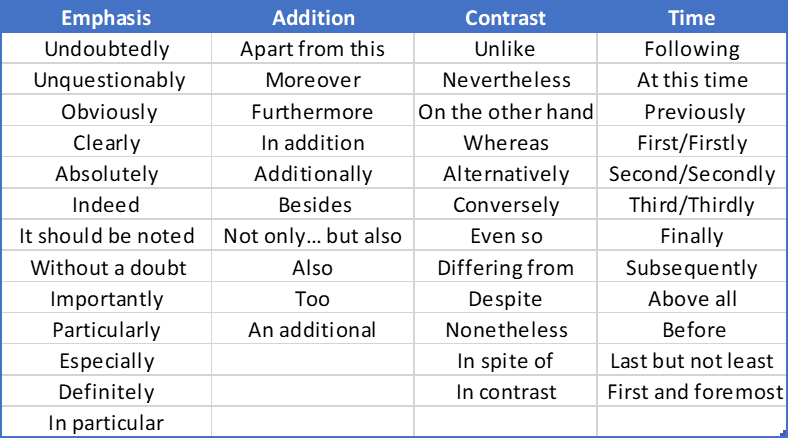
Transition words are super helpful when it comes to writing. They help readers make sense of the connections between sentences, paragraphs, and ideas. Plus, they make it easy to transition from one point to the next. In this article, we’ll cover the different types of transition words and how to use them in your writing. We’ll also provide examples of transition words used in sentences and paragraphs. By the end, you’ll be a transition word pro!
1. “Transition words” are used to connect sentences and join ideas
Transition words are an important tool to help your readers understand the flow of your writing and the logic behind it. They can also make your writing more creative and persuasive. In this article, we’ll look at the different types of transition words, provide some examples, and offer some tips on when and how to use them. By the end of this article, you’ll have a better handle on when and how to use transition words – so let’s get started!
“This is”/”First of all”
Transitional words are your best friends when it comes to writing – they help keep your content clear and organized, so your readers can easily understand your message. So, don’t forget to use them!
“In order to”/”Secondly”
Transitional words are the link between your sentences and ideas. They help make your writing flow better and show logical relationships. For example, “in order to” shows a cause-and-effect relationship, and “secondly” shows a second point following an initial point. Knowing when to use these words is key to making sure your ideas are connected in a smooth, logical way.
“Since”/”Because”
When it comes to connecting sentences and joining ideas, it’s crucial to pick the right transitional word. Having the right word can really make your writing pop!,
2. Transition words and phrases are used to smooth the flow of writing
Transition words and phrases are super helpful when it comes to writing – they help your ideas flow together nicely and make sure your work reads smoothly. They work in both formal and informal writing, and they can help you express complex ideas in a clear and precise way. In this article, we’ll show you some of the most common transition words and phrases, explain how they work, and provide examples of how to use them. With a few transition words and phrases, you can take your writing up a notch!
Transitional words and phrases are super useful when it comes to making your writing flow nicely. They help readers understand how the ideas in a sentence are connected and make it easier for the writer to move from one idea to the next. Without them, your writing might sound choppy and disorganized, which would make it harder for your readers to understand what you’re trying to say.,
3. Transition words and phrases are used to direct the reader’s attention
Transition words and phrases are like magic for your writing! They can help guide readers through your text, create relationships between ideas, or even contrast points. They make your writing flow better and make it easier to read. In this article, we’ll look at some of the most common transition words and phrases and give you examples of how to use them. With this knowledge, you’ll be able to write a great piece of writing that’s easy to follow!
They are used to connect one idea to another
Transitional words and phrases are like bridges between ideas – they help your readers follow along with your writing and know what’s coming next. They can join sentences, paragraphs, and even whole parts of your writing. Plus, they can be used to show contrast, compare and contrast, or to explain why something happened. Pretty cool, right?
They help readers follow the natural flow of the text
As a writer, it’s really helpful to use transitional words and phrases to make your writing sound more natural. They help guide the reader through the text and draw attention to important ideas. Plus, they show the relationship between different ideas and indicate the order in which things happen. Pretty useful, right?
They help the reader anticipate what is coming next
Transitional words and phrases can be really helpful for organizing your writing and making it sound more formal. If you’re not sure how to use them properly, just ask your teacher – they’ll be happy to help you out.
Conclusion
In conclusion, transition words are your best friend when it comes to writing. They help your points stand out, tie your thoughts together, and introduce new ideas. Plus, they make your writing look more professional. With a bit of practice and the right transition words, your readers will be sure to enjoy your writing.


